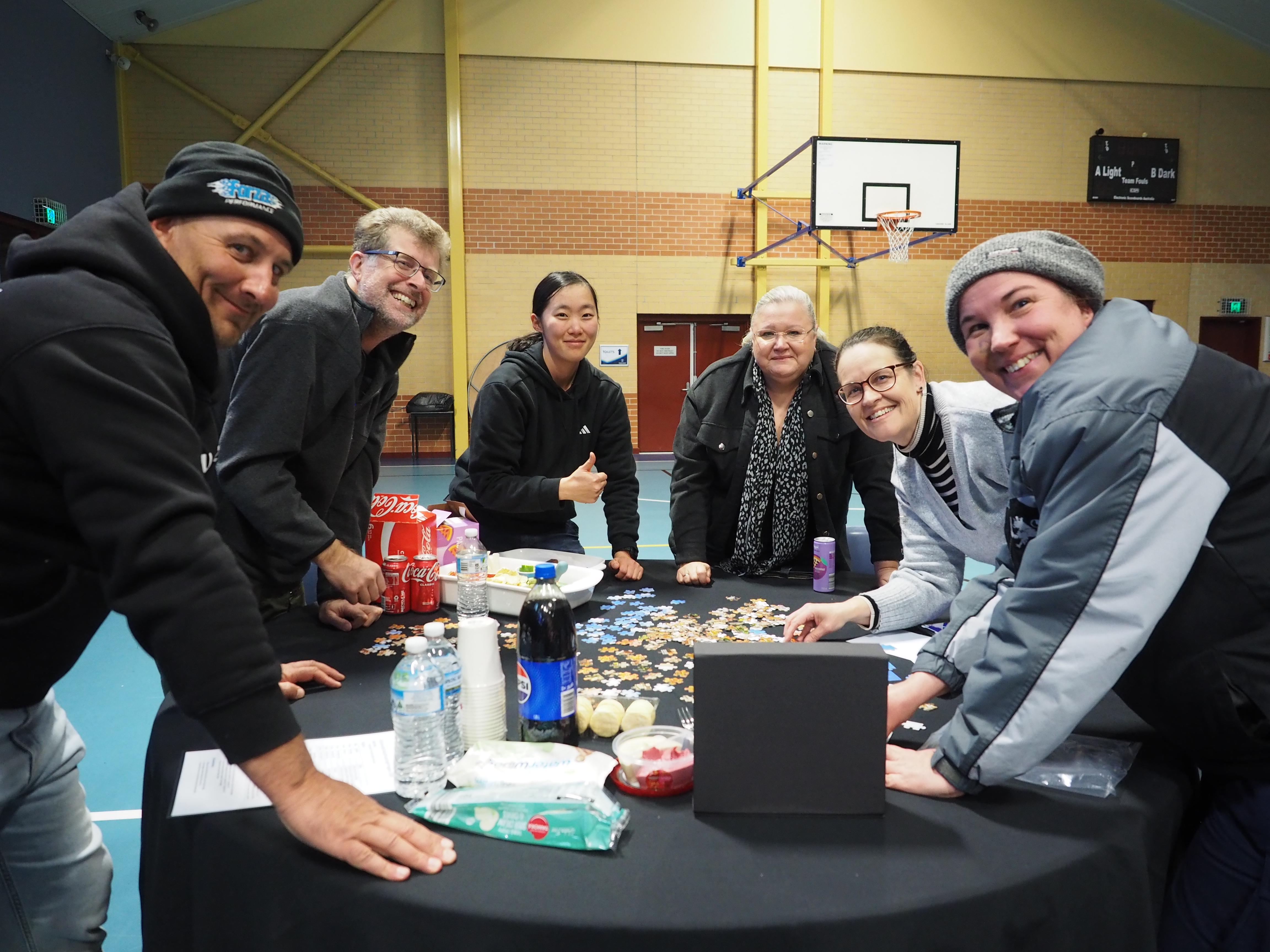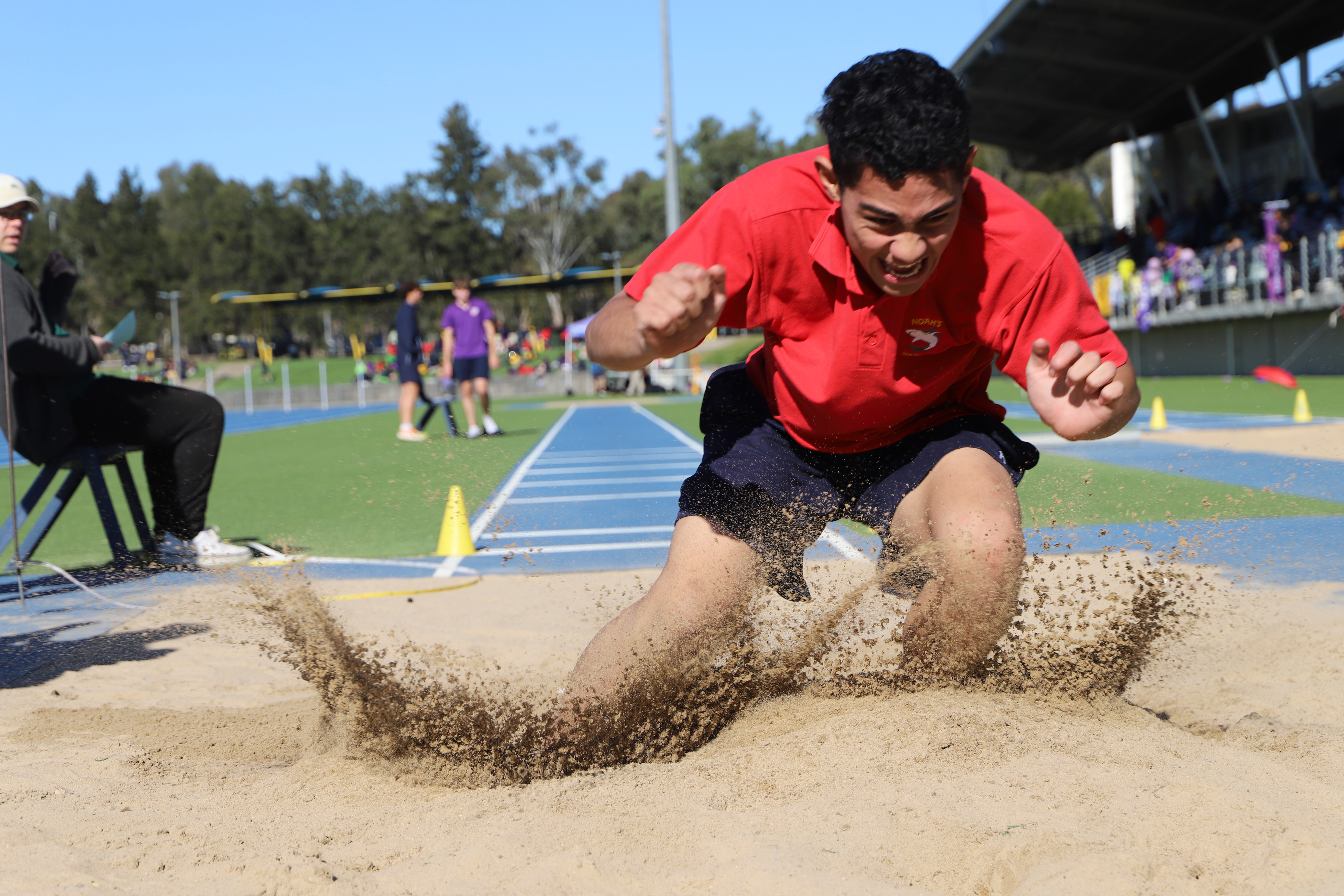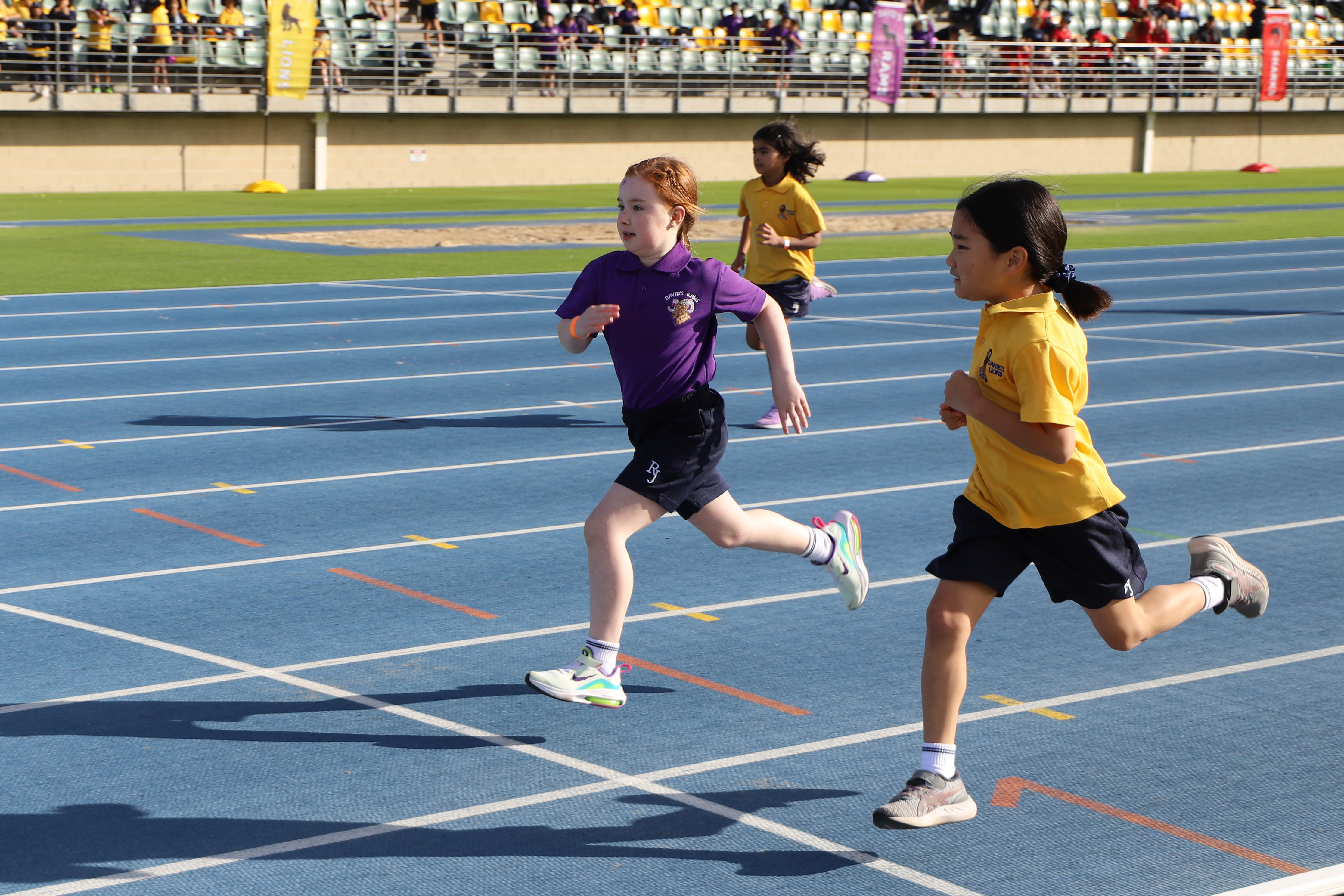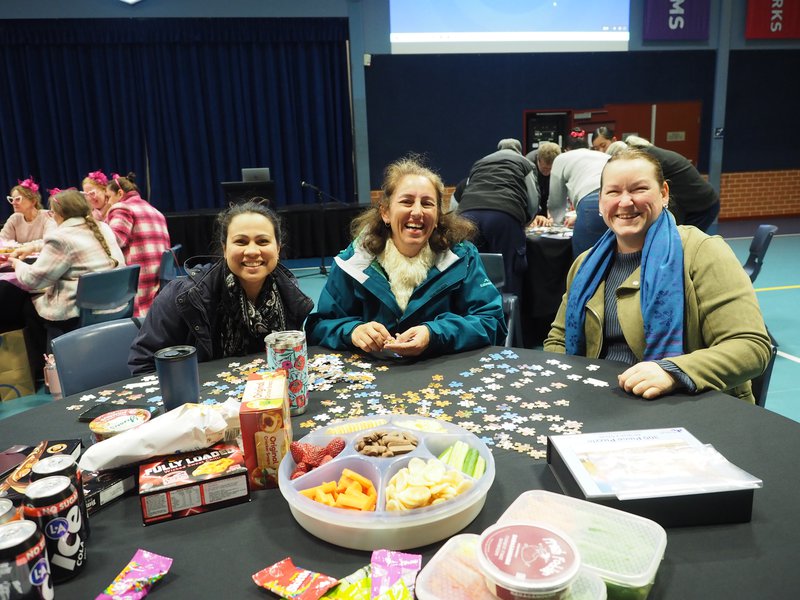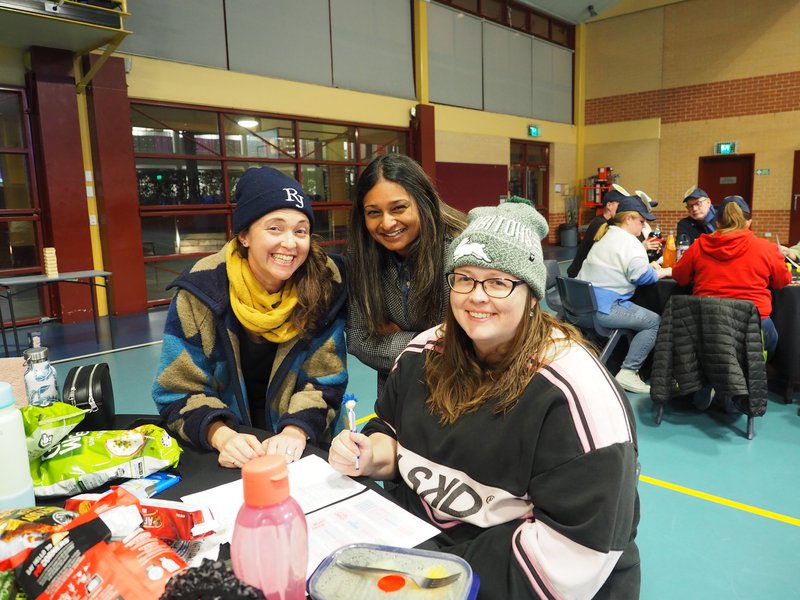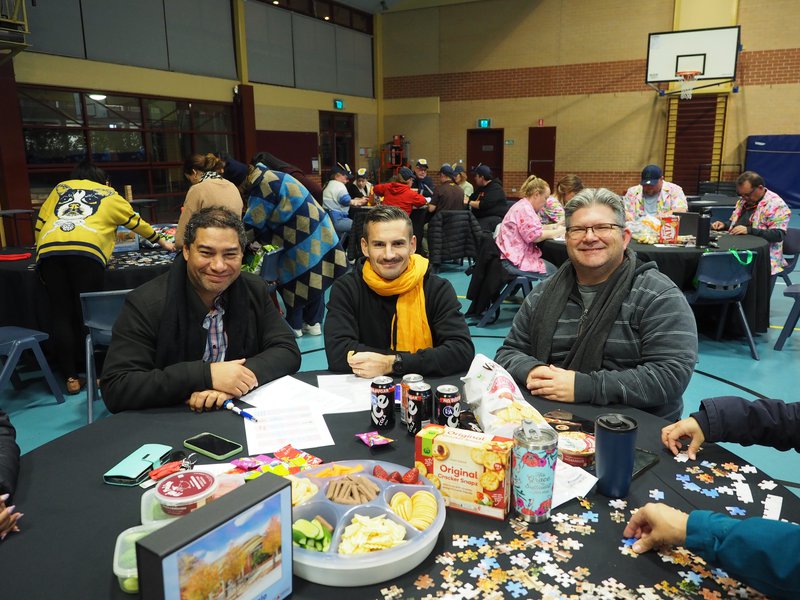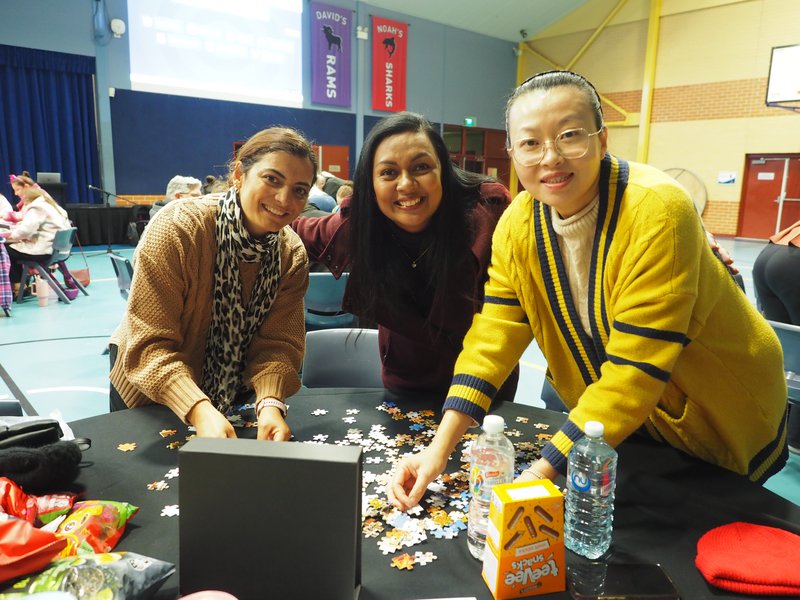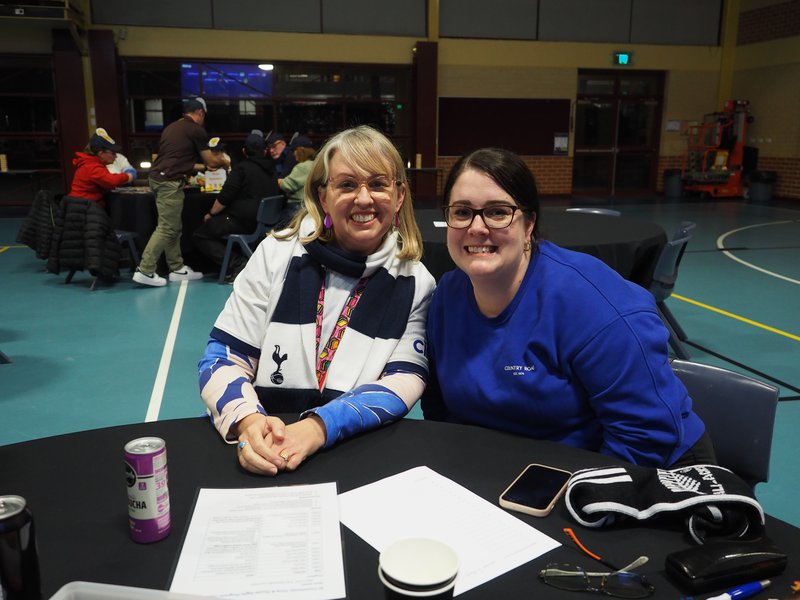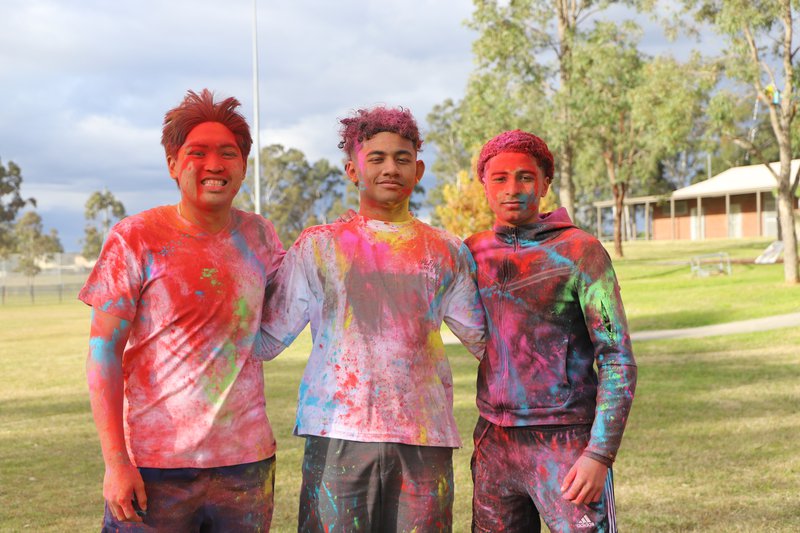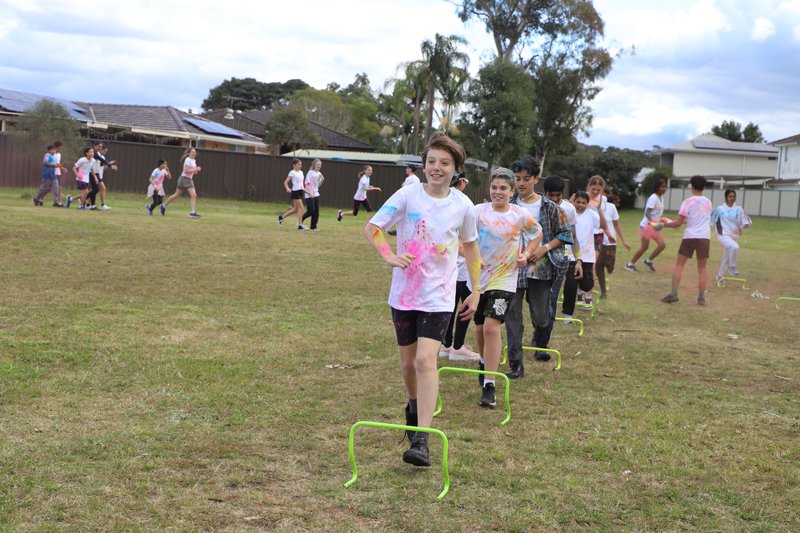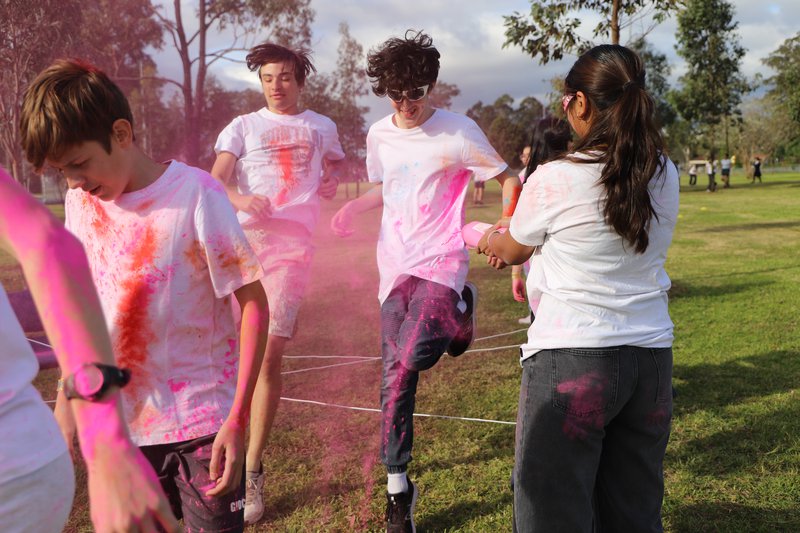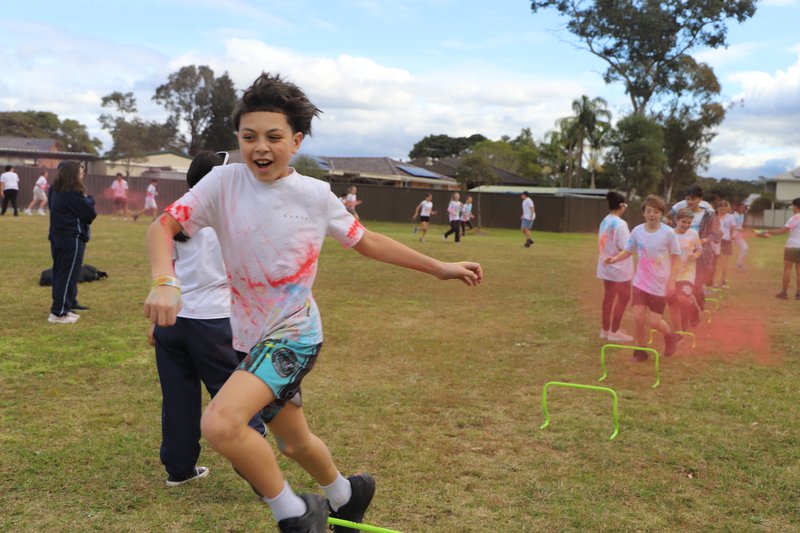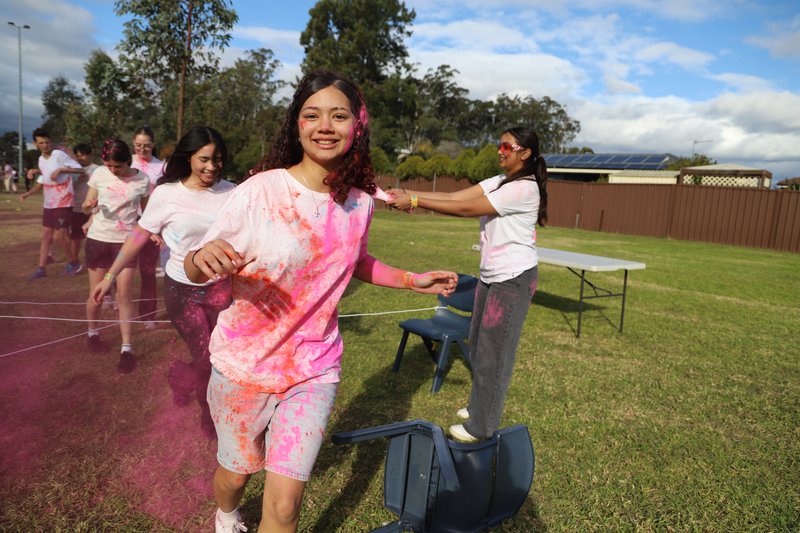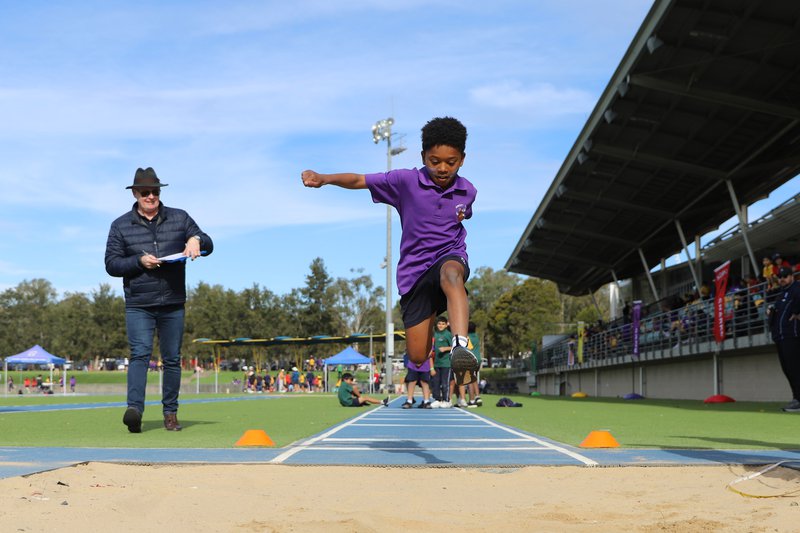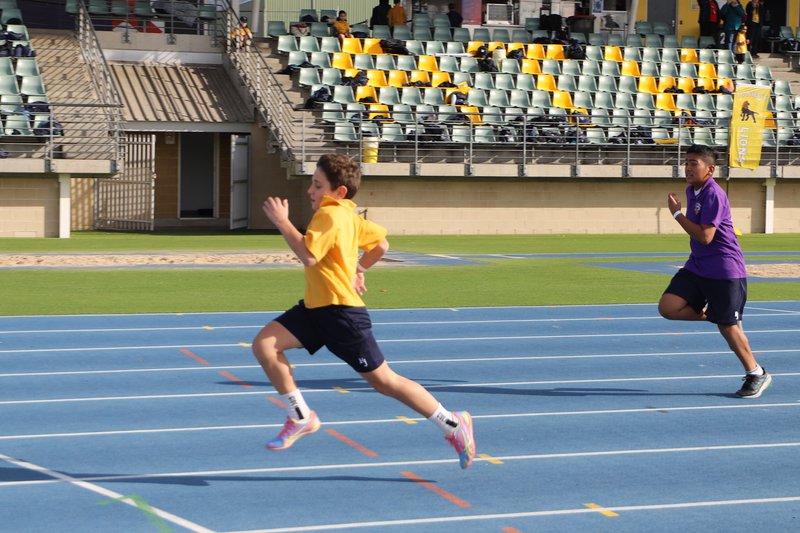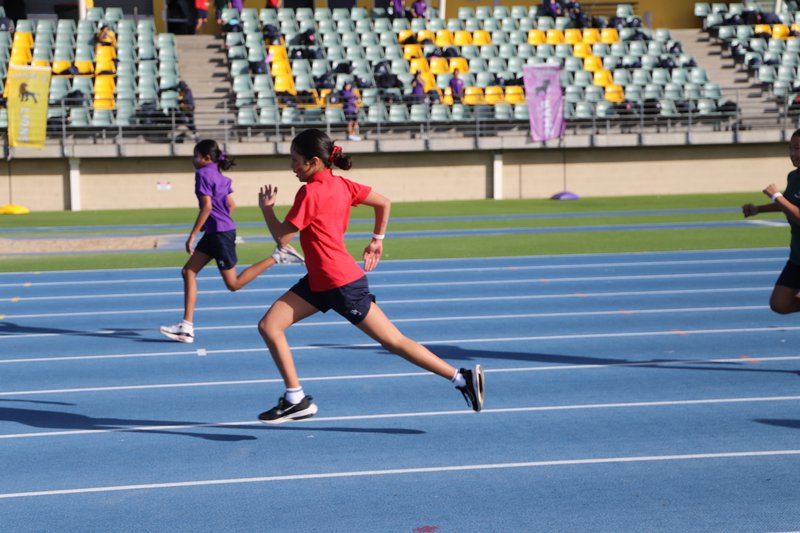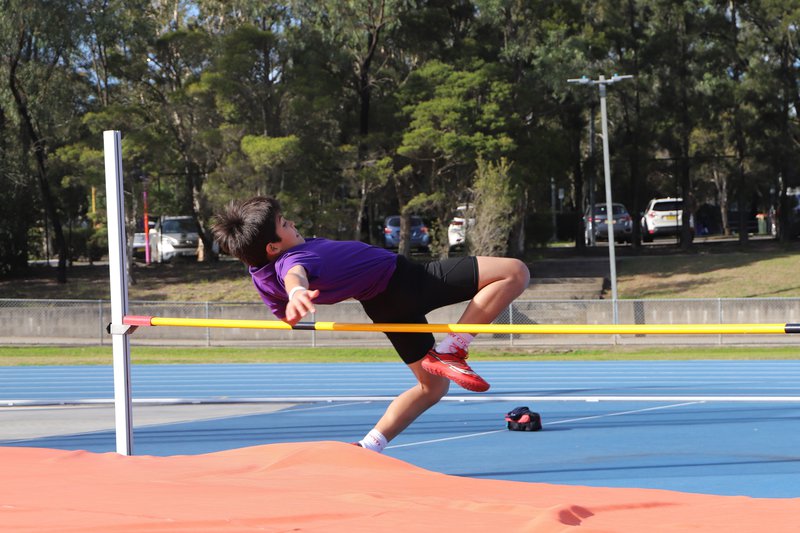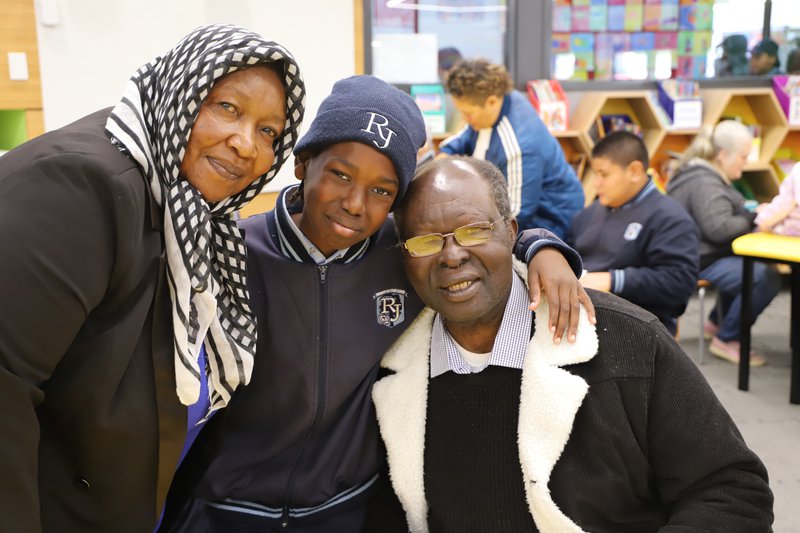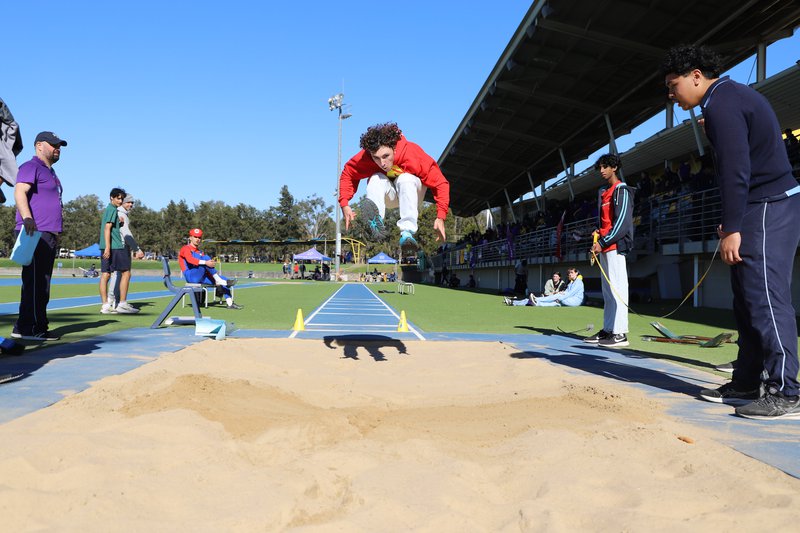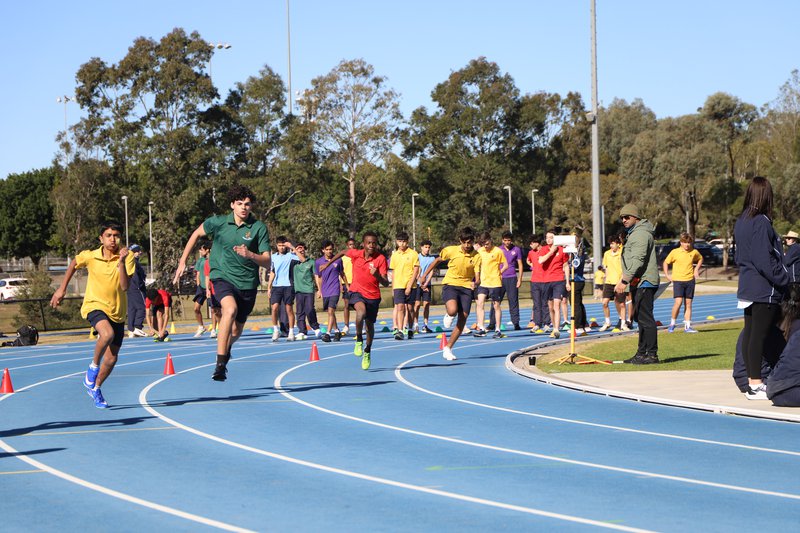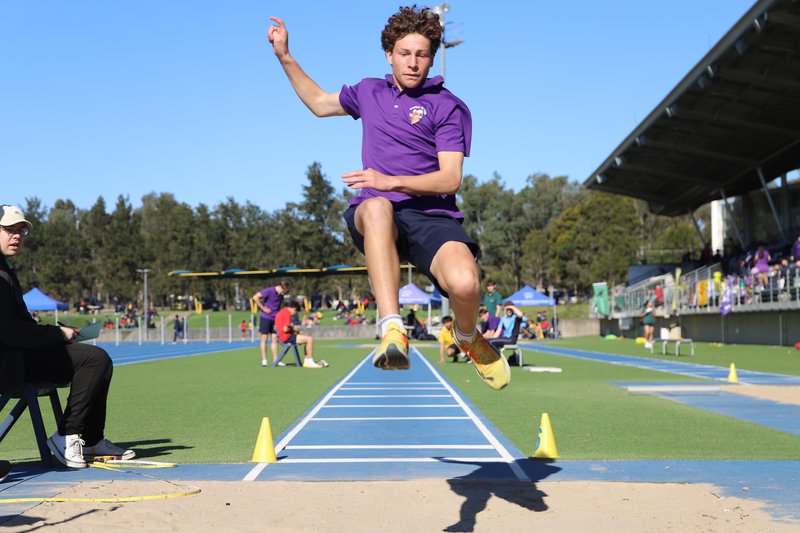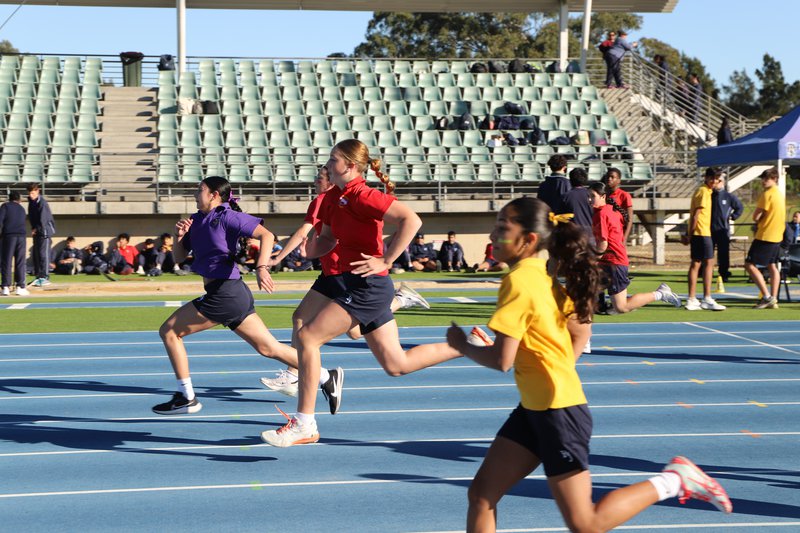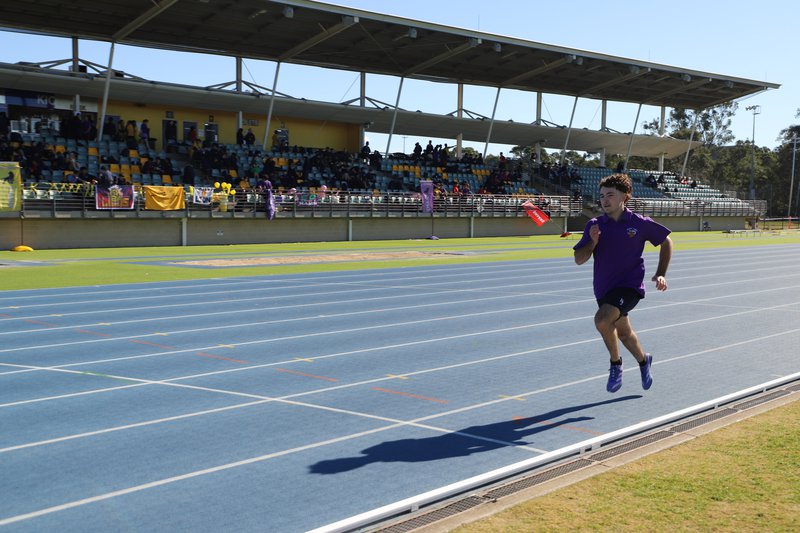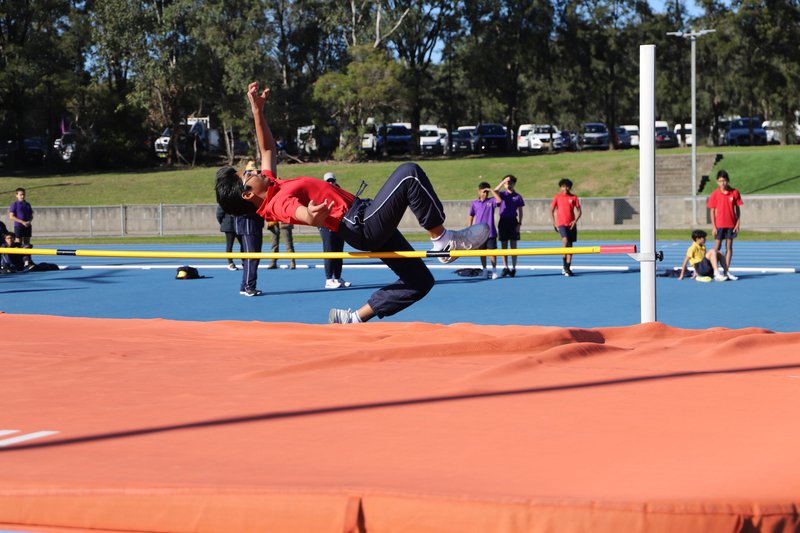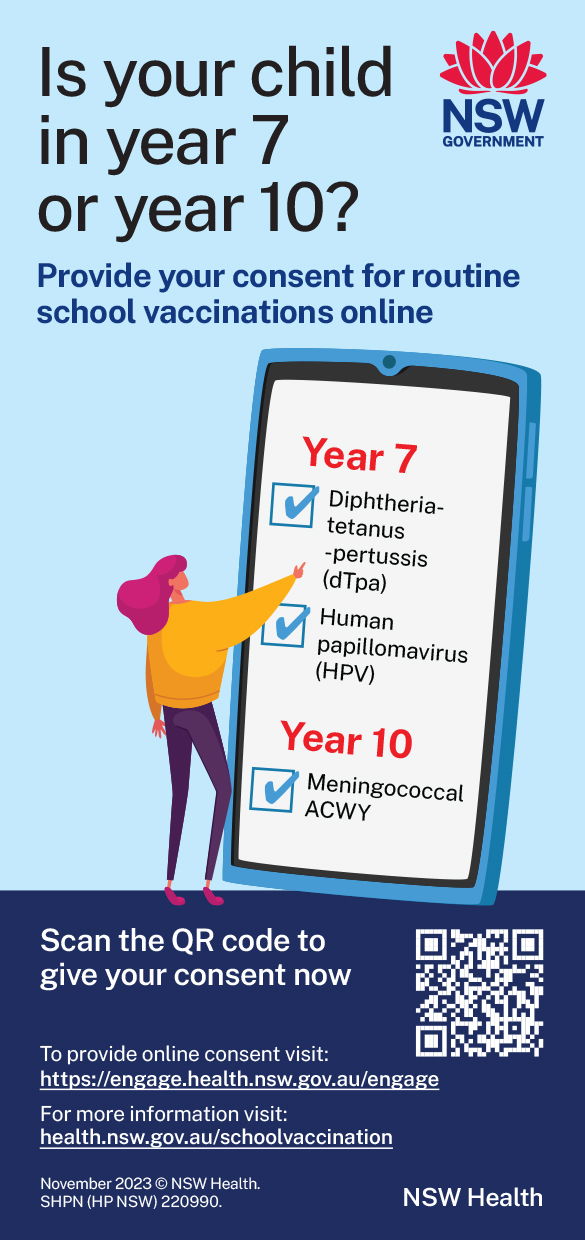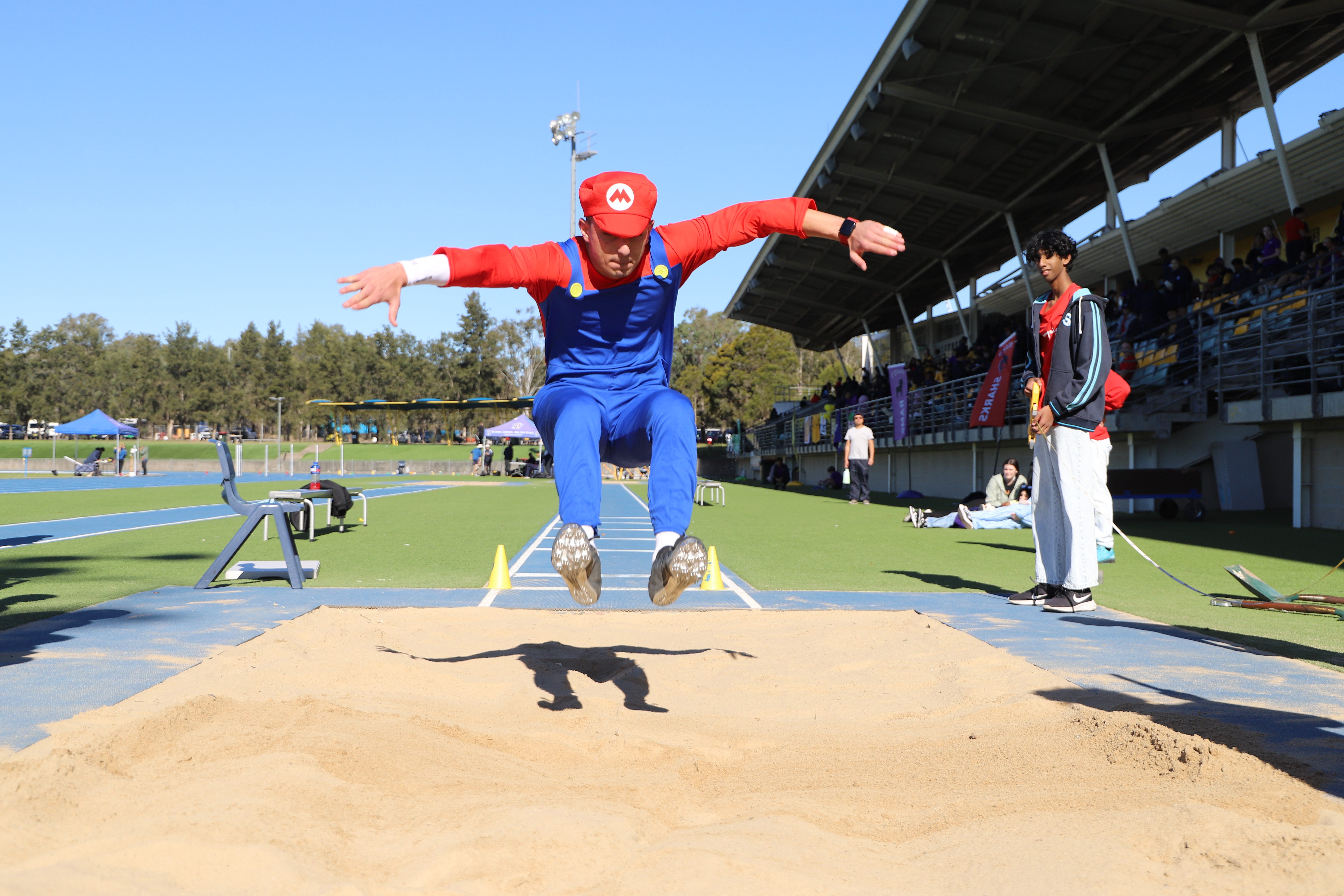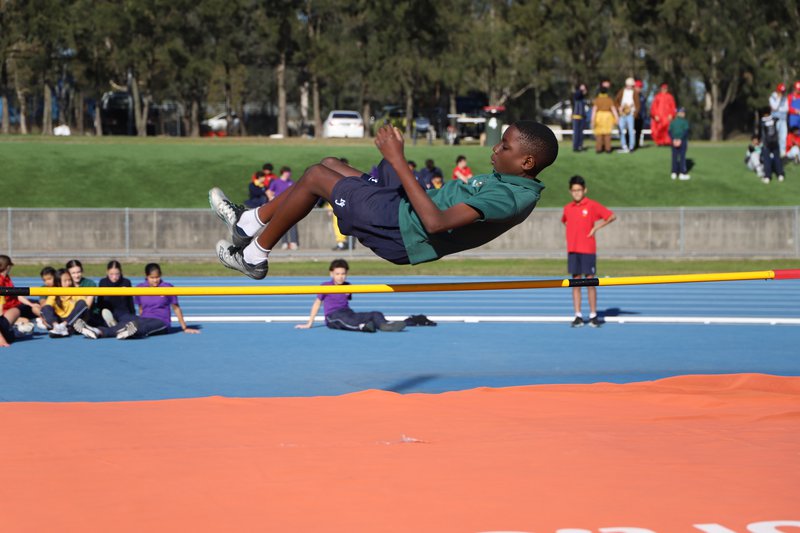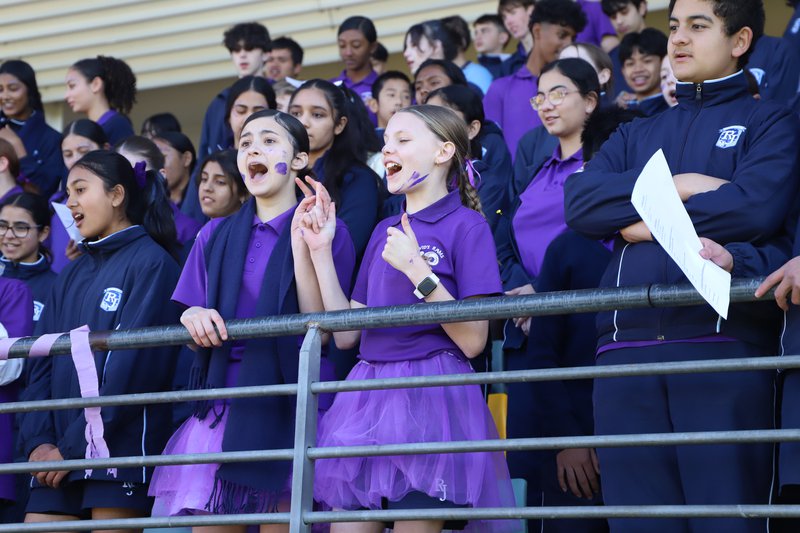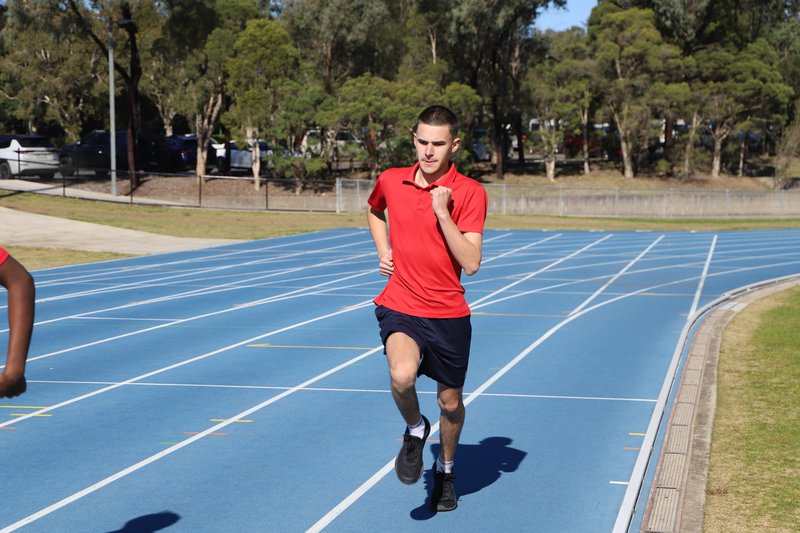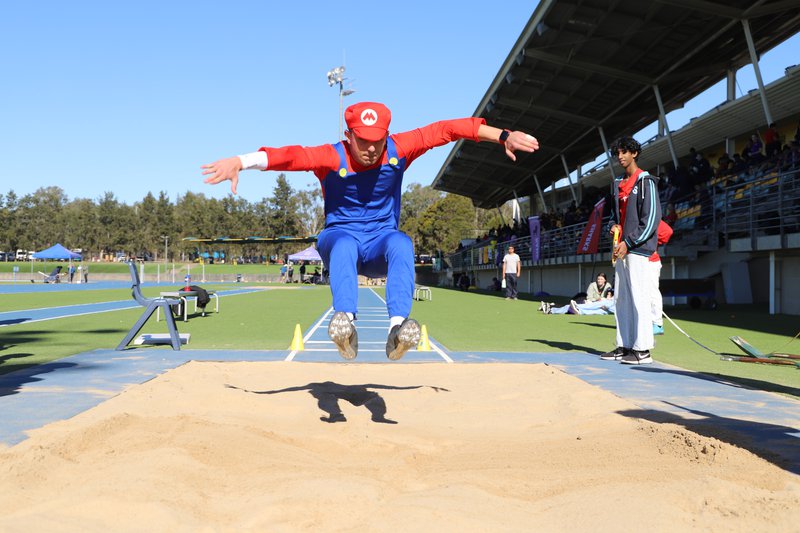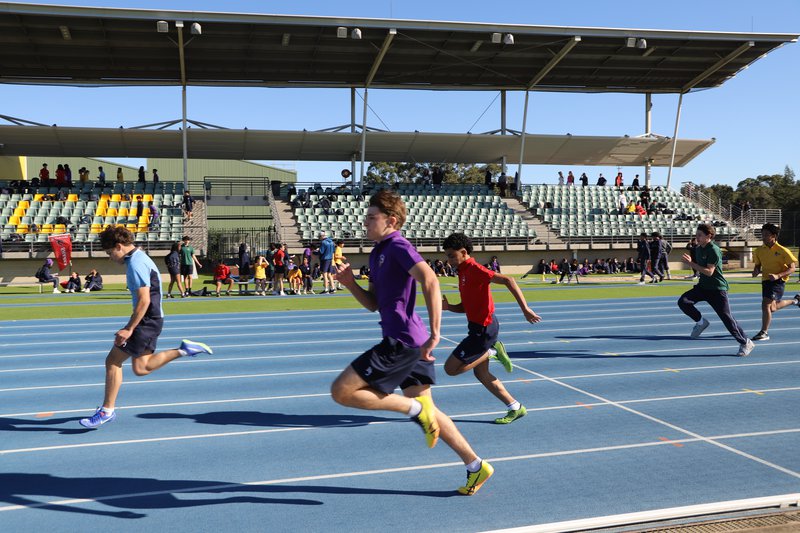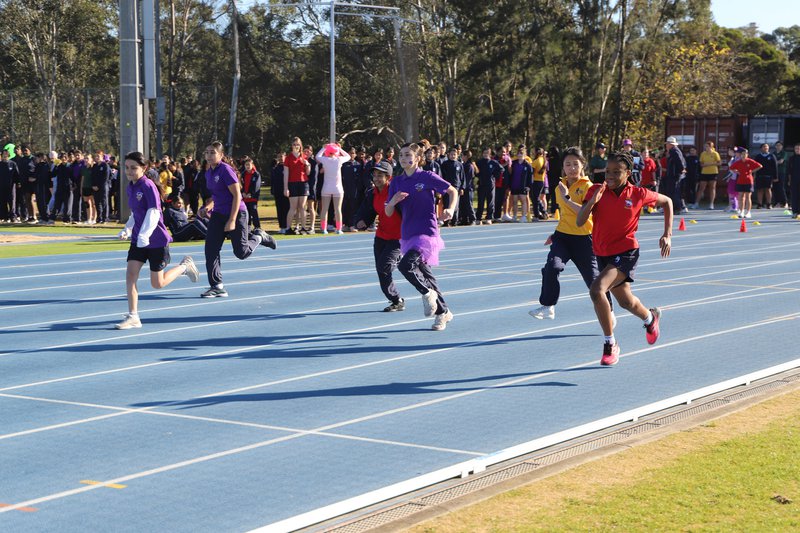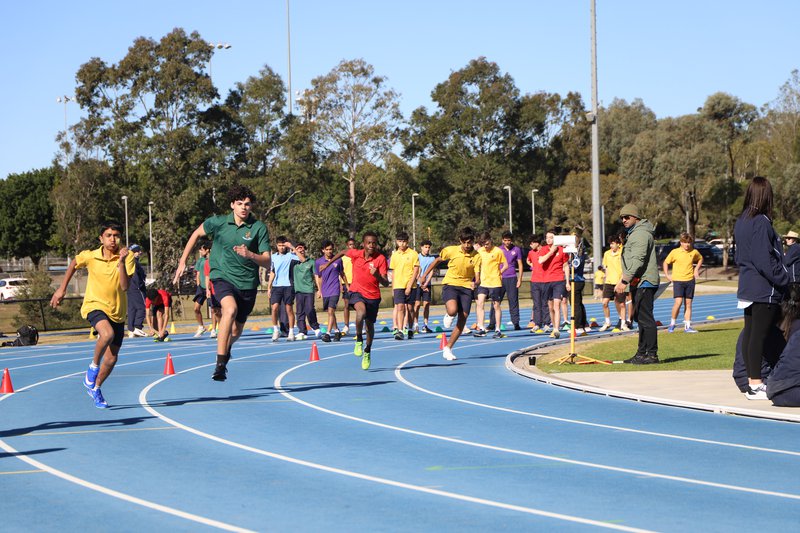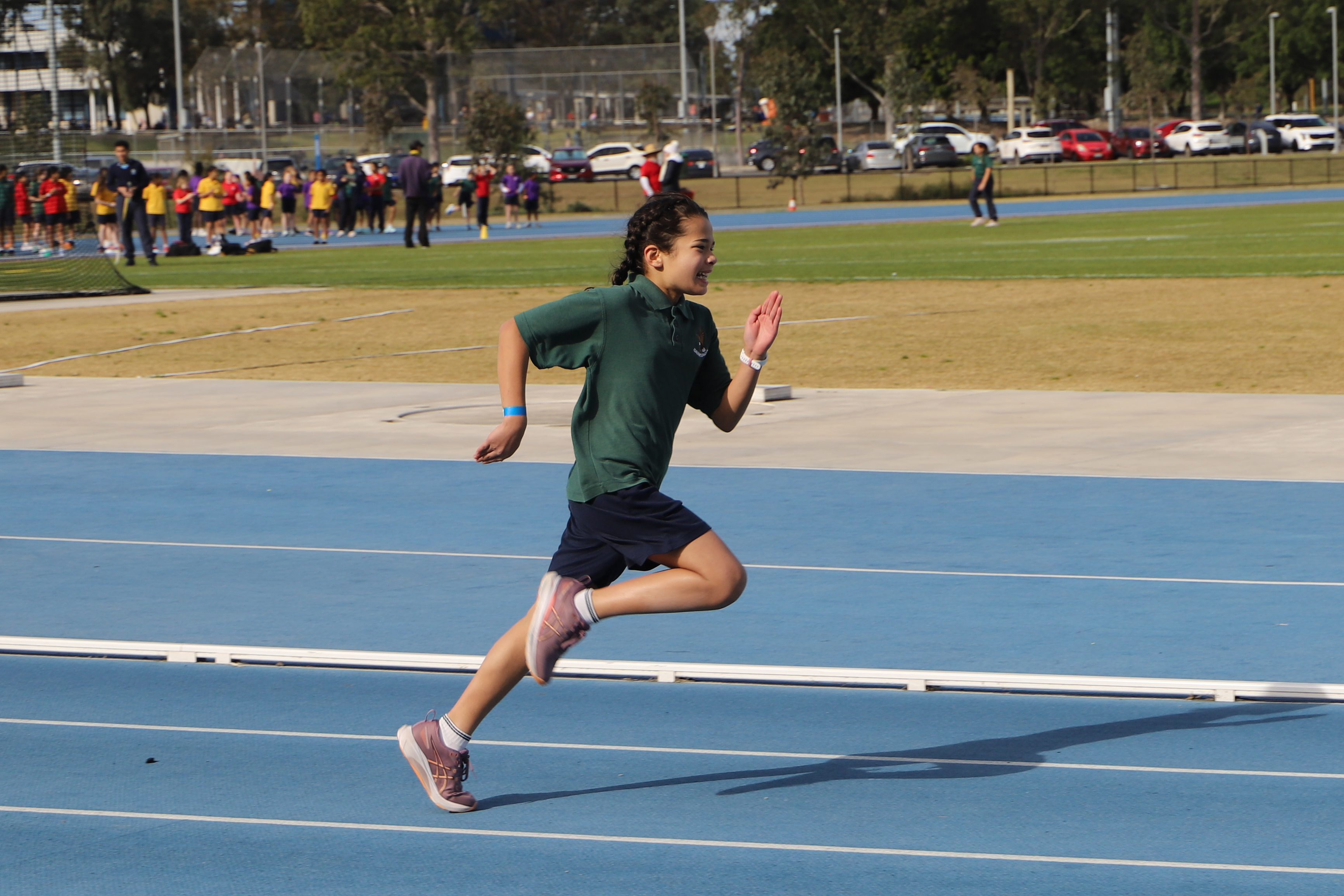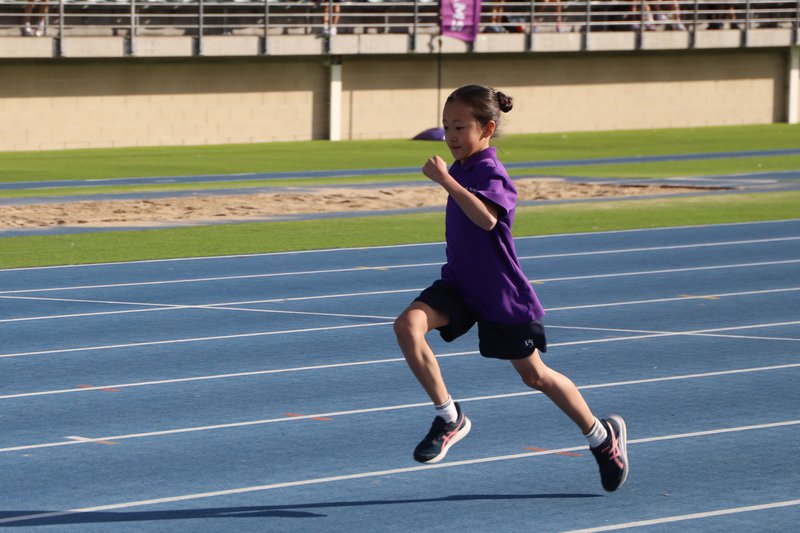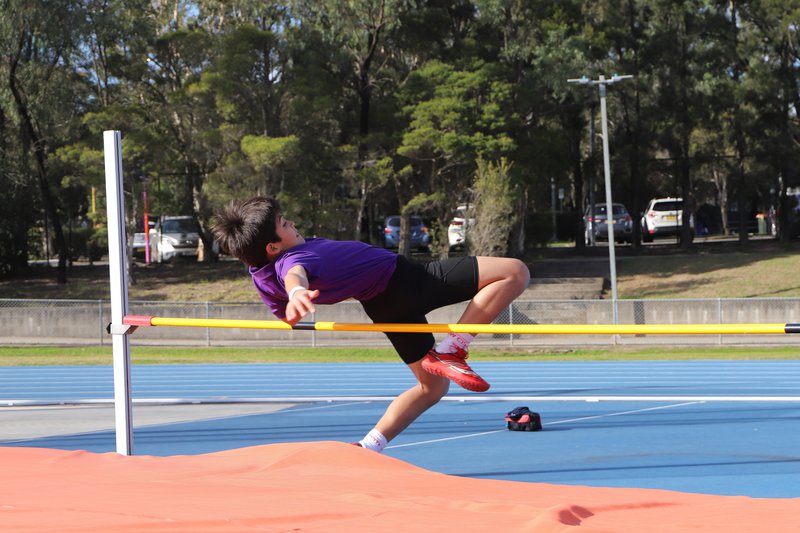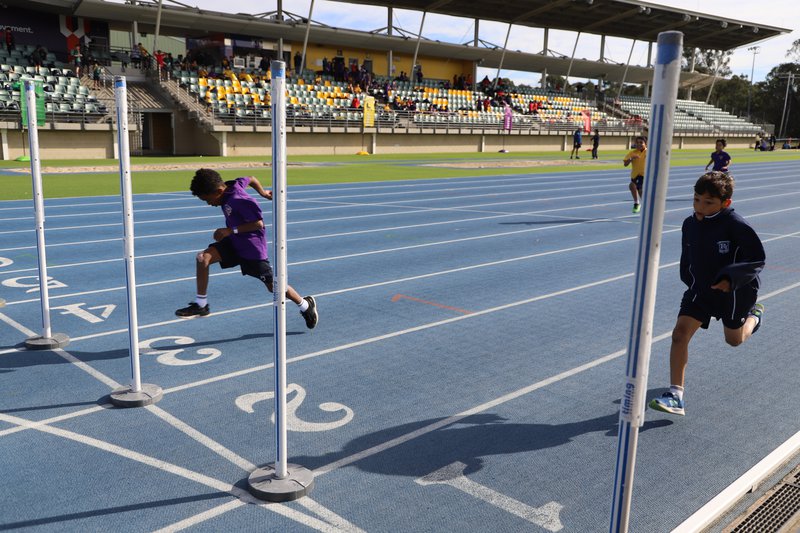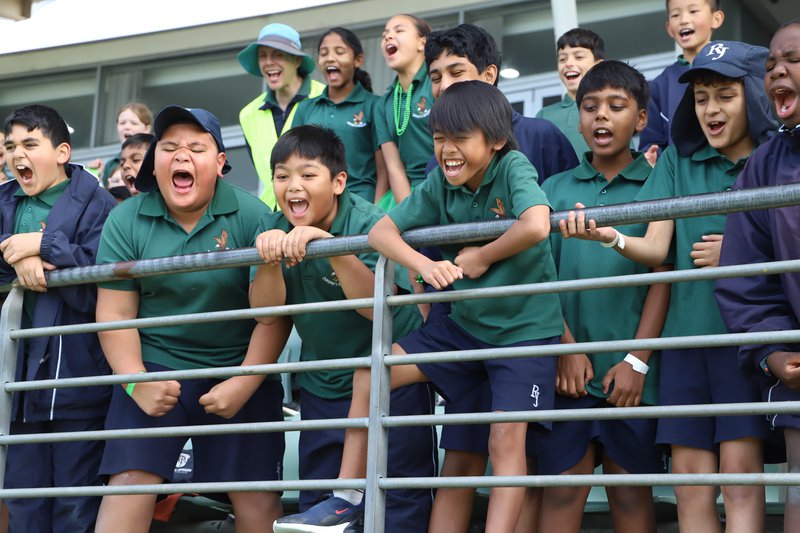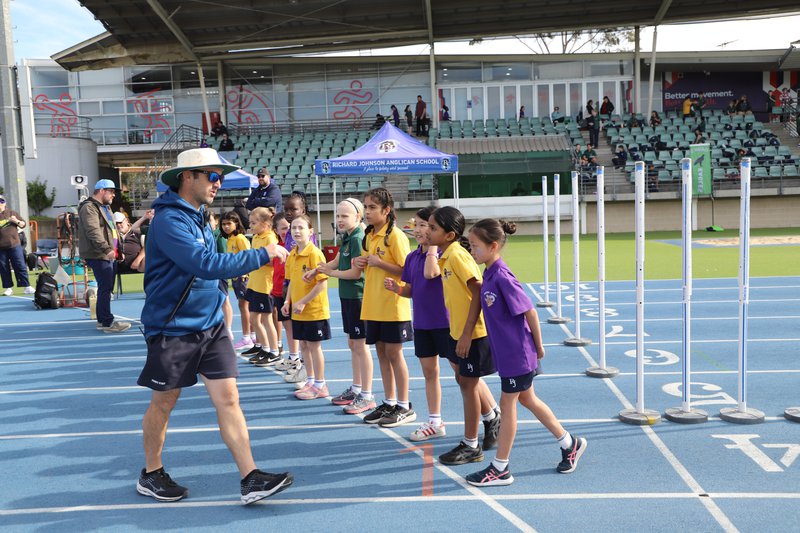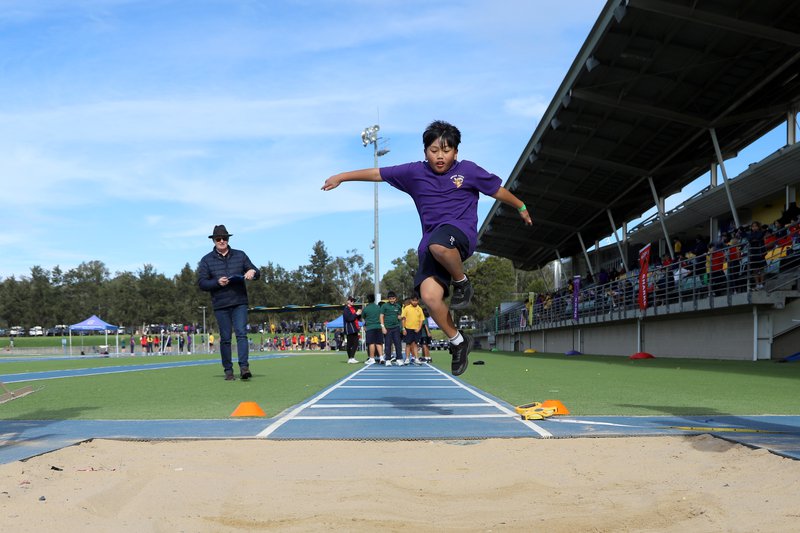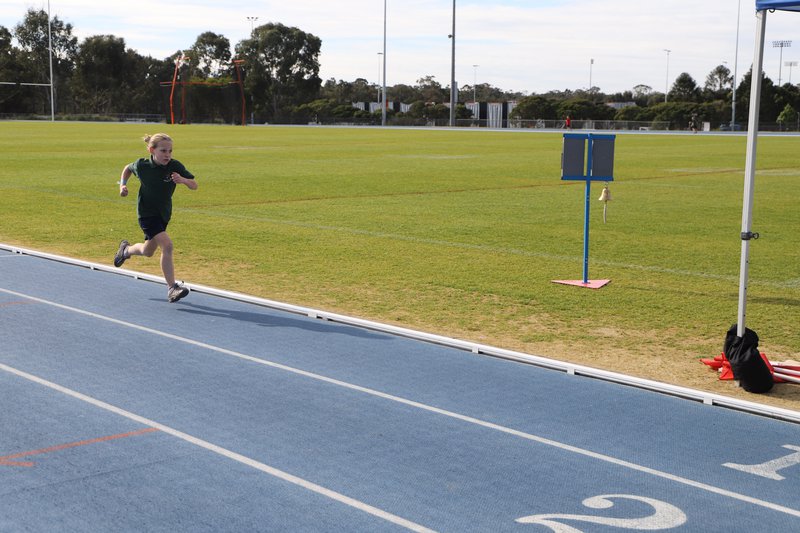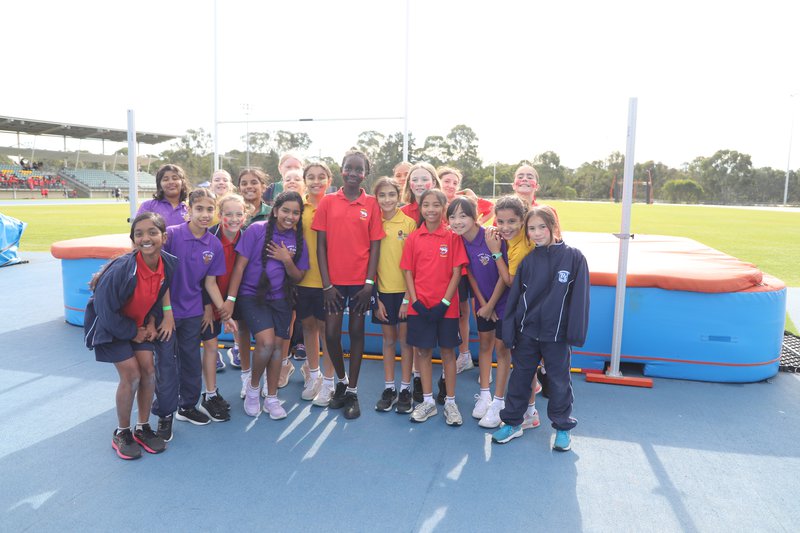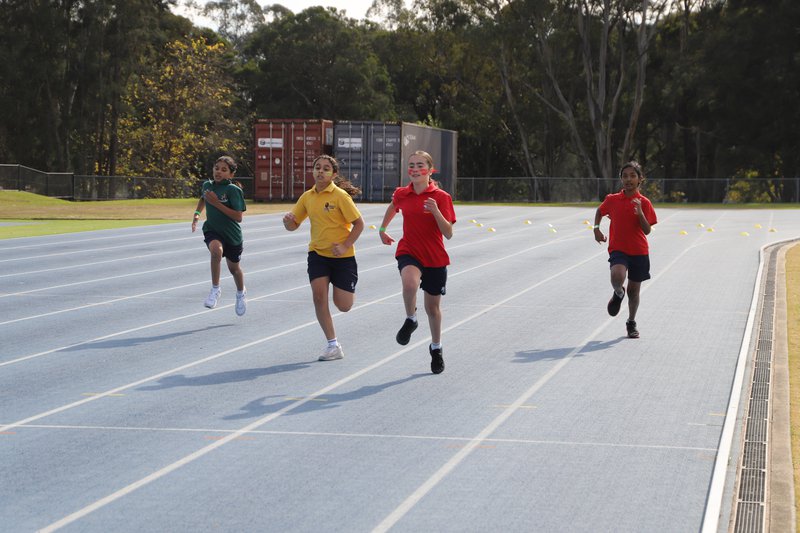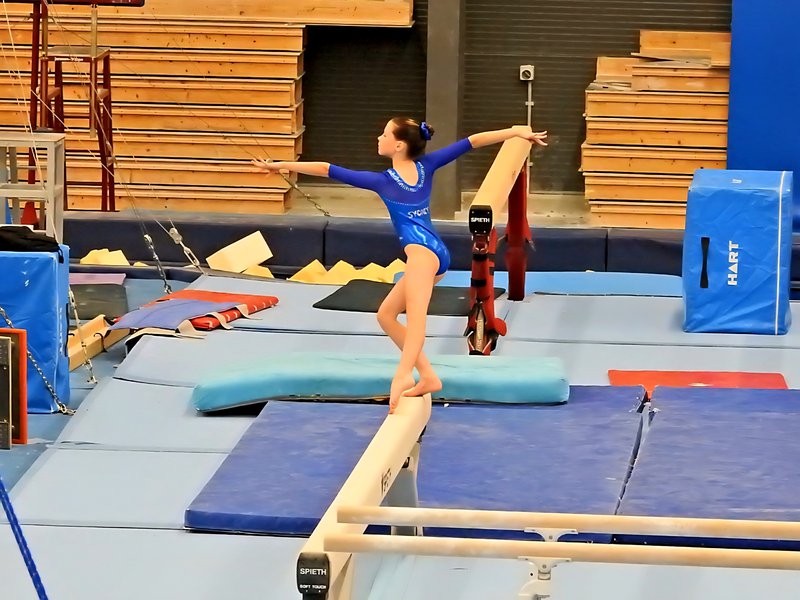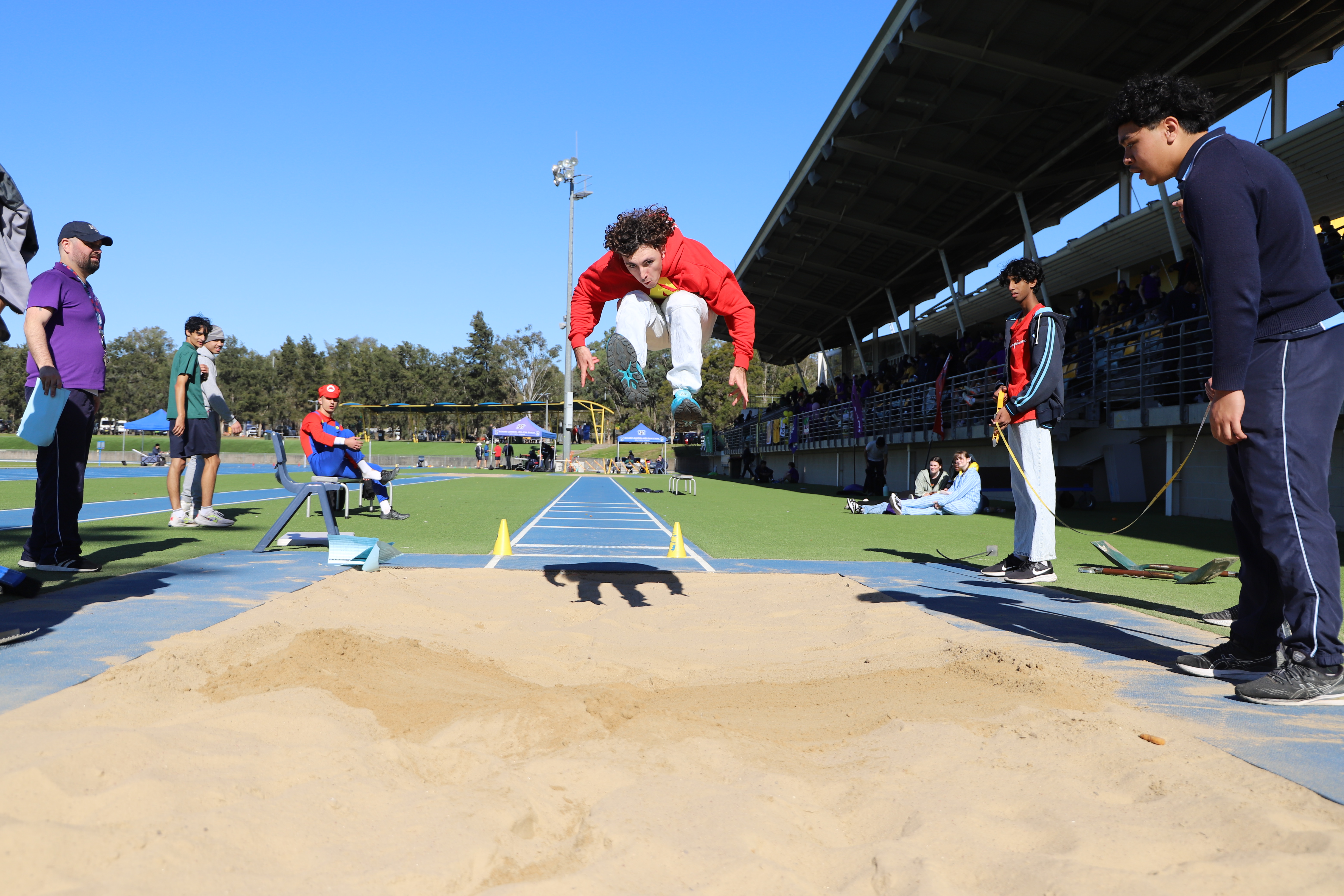
Student engagement in the track and field events was strong, as was their enthusiastic participation in the House chants. I look forward to hearing how our students perform at the upcoming Zone Athletics Carnival after qualifying to represent RJ at the next level.
Thank you to the student House Leaders for organising the relay teams and leading the chants. Thanks also to the staff who made the day such a success, particularly Mr Mitchell and the PDHPE staff.
HICES Maths Challenge
RJ hosted the HCIES Maths Challenge for the first time this year, welcoming over 160 students and staff from a range of independent schools. While a trophy and medallions were awarded to the winning tea, the most memorable part of the day was the vibrant competition and interaction between students from across Sydney and beyond.
Thank you to Mr Jenner, our Maths Faculty Leader, for coordinating the event, and to Mr Dibden and the Year 11 students who provided valuable assistance throughout the day.
Students Arriving Late to the College - Demerits from Term 3
It is concerning to see the increasing number of students arriving late to the College. Senior School students are required to arrive well before 8:30am to ensure they are on time for Home Group, which commences at 8:30am. Late arrivals are recorded as part of the College’s attendance data and appear on Semester Reports.
From Term 3, any student arriving without an explanation from a parent/carer will be issued a demerit. Demerits contribute to the issuing of Formal Lunch or Afternoon Detentions.
We appreciate the continued support of parents and carers in reinforcing punctuality.
Annual Winter Sleep Out
The annual Winter Sleep Out takes place tonight, Friday 20 June. It is encouraging to see the number of students (and staff) choosing to participate. Unfortunately, due to high demand, some students were placed on a wait list rather than attend the event. We hope those students are able to take part in future years.
Many memories will be made during the night—through games, a shared meal, the unique experience of sleeping overnight at the College, and meaningful conversations about homelessness. Thank you to the students and staff who helped organise this event. Your efforts support Youth Off the Streets and enable a meaningful act of service in a special way.
Change to Year 7 and 8 Learning Conferences
Parents/Carers were notified earlier this week of a change to the dates to the Year 7 and 8 Learning Conferences. As a reminder:
The rescheduled dates for the Stage 4 Learning Conferences are as follows:
• Year 7 Learning Conferences: Tuesday, 29 July (Week 1, Term 3)
• Year 8 Learning Conferences: Wednesday, 30 July (Week 1, Term 3)
Heritage Day
Our annual Heritage Day will take place in Week 10 on Thursday, 3 July. Thank you to all RJ community members contributing to the day—through food stall donations and the provision of clothing and costumes for the Heritage Parade.
I am looking forward to the colour and energy that always make this day so special.
End of Term Two
The final day of Term 2 is Friday, 4 July. Senior School students are expected to attend each day of Week 10. Lockers must be emptied and locked for the three-week break.
Time will be provided on the last day of term to clear lockers, but students are encouraged to begin taking belongings home over the final three days to avoid carrying an overloaded bag.
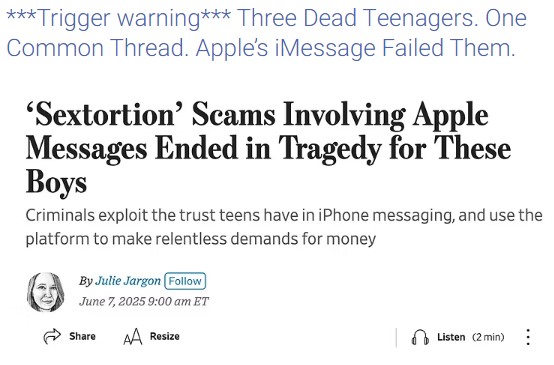
Teenagers and one of the risks of the Internet/Social Media
While an awareness and monitoring teenagers use of the internet, particularly social media, is the domain of parents/carers, the College often finds that we are having to deal with the misuse of social media and its impacts as families may not be engaging in possibly difficult but necessary of conversations. The College has had a small number of incidents, though possibly more that we are not aware of, of students sharing explicit images of themselves or others, sometimes by choice and other times through coercion. The following is a resource that may assist families within our community.
'Safe on Social' recently shared an article regarding concerning misuse of the social media and the tragic impact it has had on at least three families in the USA. While the issue of “sextortion” is confronting, the article provides some helpful advice and resources for parents/carers in supporting their teenagers.
3 Ways to Start the Conversation About Sexual Extortion with Your Tweens and Teens — and Why It Matters Now More Than Ever
We no longer use the term sextortion because it dilutes the violence of what’s happening. Sexual extortion makes it clear. This is not a misstep or a teenage experiment gone wrong. It’s exploitation, plain and dangerous. By naming it for what it is, we strip away the shame that stops kids from asking for help. Words matter. And so does timing.
If you or your child are navigating any of this, don’t wait. Go to the Australian Centre to Counter Child Exploitation (ACCCE) for official guidance and reporting tools. You can also visit SmackTalk, a peer-informed education platform that tackles these conversations head-on with straight talk, not sugar-coating. Because the digital world isn’t going to slow down. But we can get louder. Smarter. And much, much harder to manipulate.
The word sexting once seemed like the scariest thing a parent might have to explain to their child. But we're past that. The reality is starker now. Children are no longer just experimenting with risky images or impulsively sharing with people they trust. They are being targeted, manipulated, blackmailed — sometimes by strangers, sometimes by people they know.
Run through encrypted platforms, gaming chats, social media, and even school-group DMs, these schemes are often part of larger criminal networks that know how to groom a child in minutes. They collect compromising images or videos, then threaten to expose the victim unless they send more. Sometimes money is demanded. Sometimes the threats escalate into real-world harm. In all cases, the child is trapped. And deeply alone.
In 2024, the Australian Centre to Counter Child Exploitation (ACCCE) recorded an unprecedented increase in reports of sexual extortion, especially targeting boys between 12 and 17 years old. Many cases involved international criminals posing as teens online. And while legislation scrambles to catch up, kids are being coerced into silence and shame. Some don’t survive the psychological fallout.
So if you’re a parent or caregiver, the most powerful thing you can do today is start the conversation not with fear, but with clarity and consistency.
Here’s how:
1. “What kind of images or videos do you think are okay to share with others?”
This isn't about lecturing. It’s about giving your child space to process what they already see online and what they think is normal. When you ask this question, you’re not just asking about behaviour. You’re helping them define personal boundaries, online consent, and digital permanence.
Let them speak. No interruptions. Then share your values in plain, non-judgmental terms. The goal is to build trust, not compliance.
2. “What would you do if someone asked you to send a photo or video of yourself?”
Kids don’t make decisions well when they’re panicked. But if they’ve already imagined a scenario, they’re more likely to respond with confidence. This is your chance to help them pre-load strategies and scripts for high-pressure situations. Reinforce that it is never okay for anyone — friend, crush, stranger — to demand or guilt them into sharing images. And that they can always come to you, no matter what.
Make it normal to talk about awkward or frightening scenarios before they happen. That’s where the real protection begins.
3. “Do you know what can happen if someone shares your image without permission?”
Your child probably knows the images don’t disappear. But they may not know that their data — including photos — can be stolen, altered, and sold. Or that once an image circulates, even among peers, it can be used for bullying, impersonation, or long-term exploitation. This is where sexual extortion often begins: one image, shared under pressure, then used as blackmail. The offender might threaten to send it to family members, friends, or post it publicly unless more are sent. It's a trauma trap.
Let them know the law is on their side. That it's never their fault even if they sent an image of themselves naked or nearly naked. And that there are real people who can help, right now.
The full article can be access via this link. Caution: Trigger Warning has been linked to this article by it publisher as it makes reference to teen-suicide.
Mr Brad Maxwell
Head of Senior School







